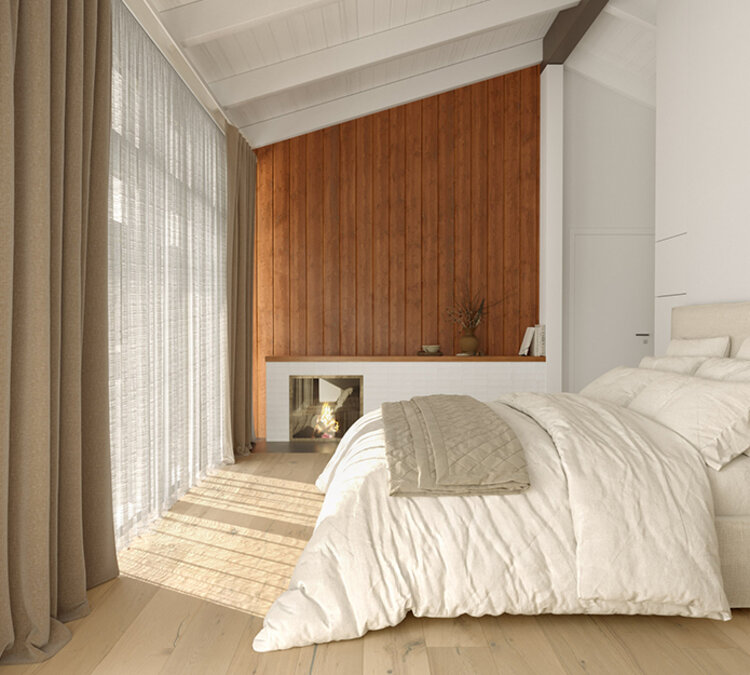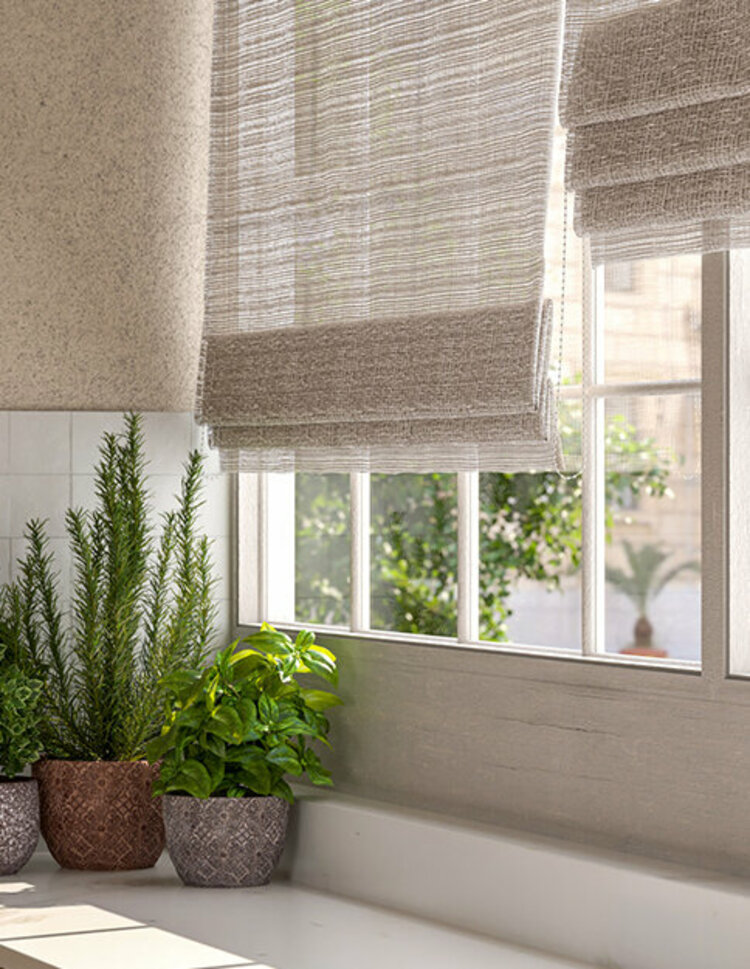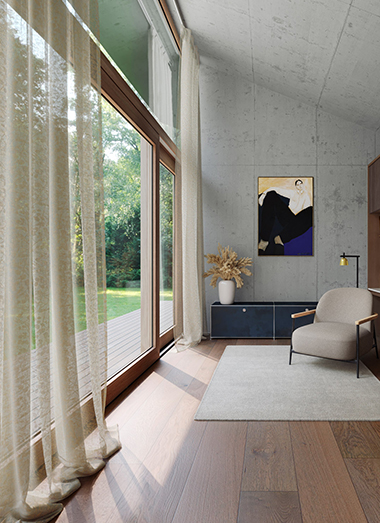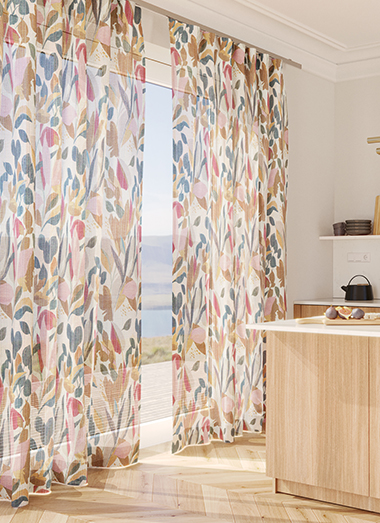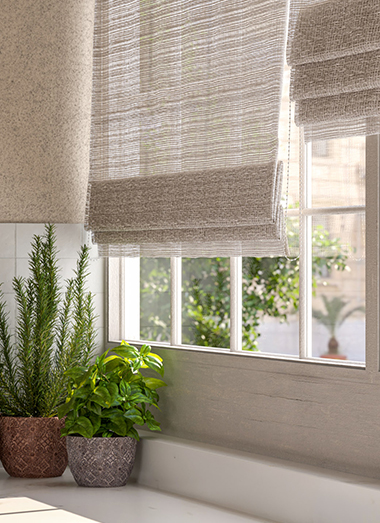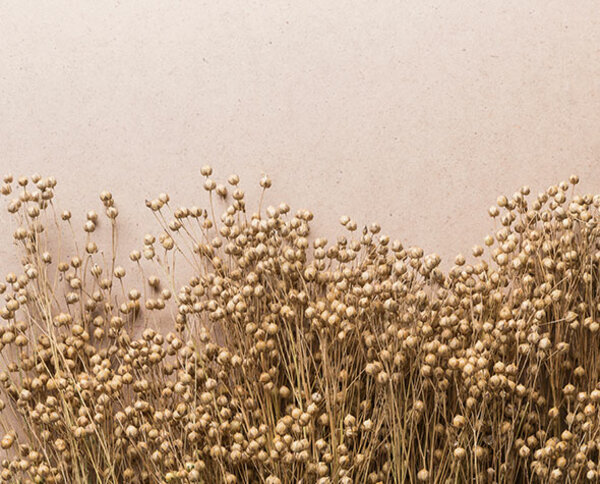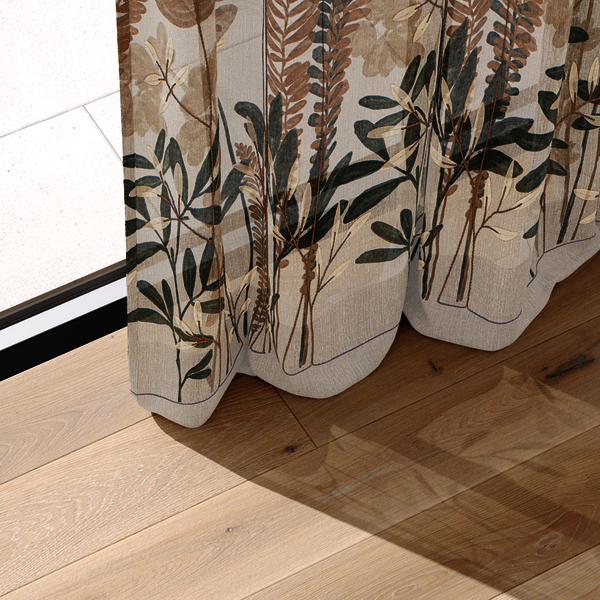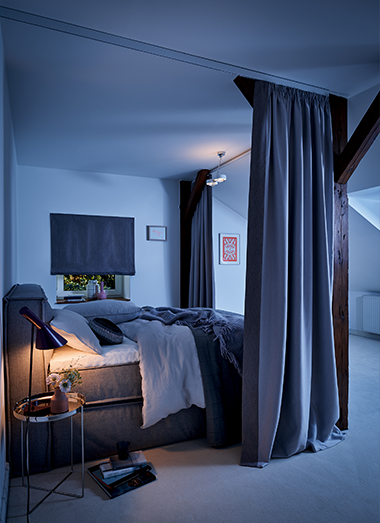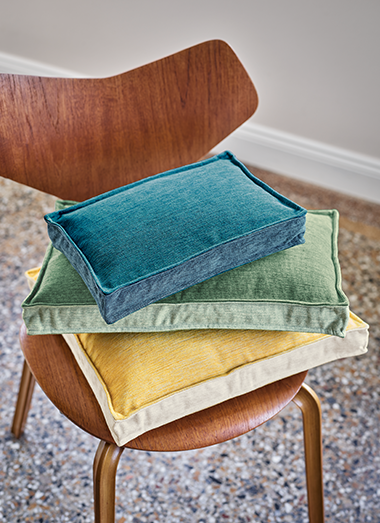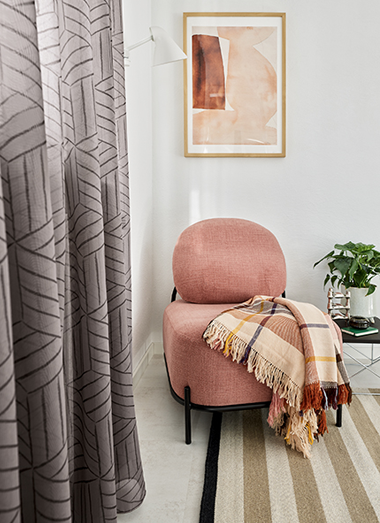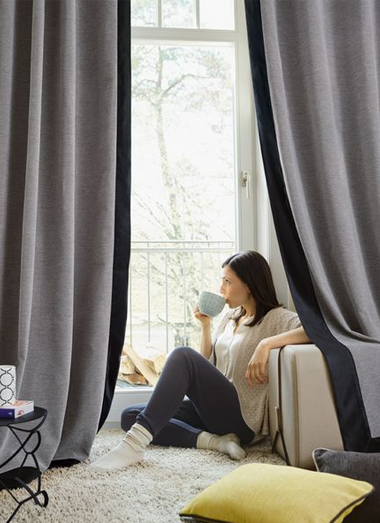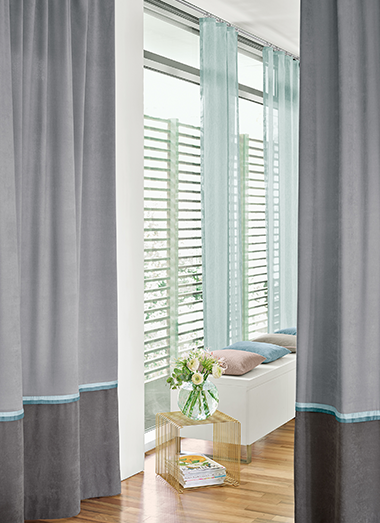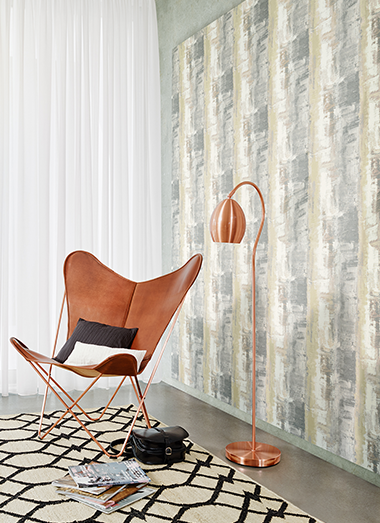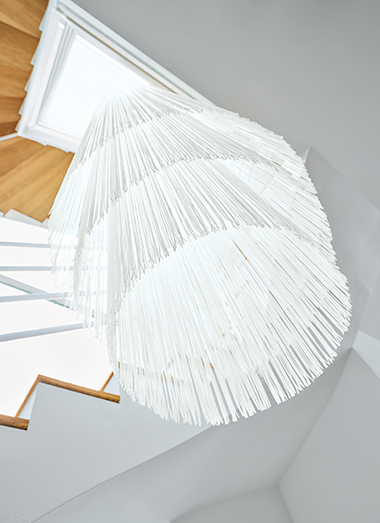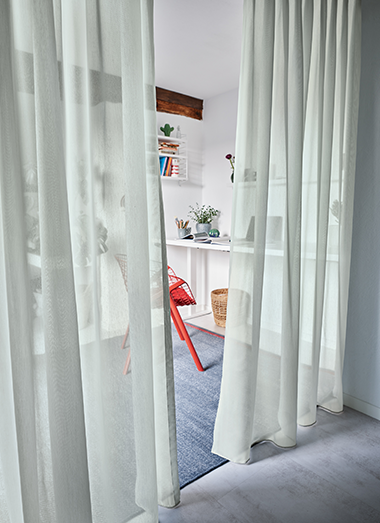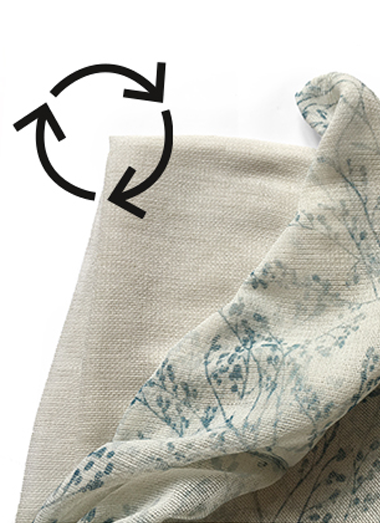Decorate Naturally
ADO Natural Fiber Fabrics
You may have already noticed: With each new ADO collection, the percentage of natural fibers in our portfolio increases. We take this step intentionally in order to create more sustainable products. Natural fibers "by nature" have minor color variations, which is the charm of fabrics made from linen, cotton, etc.
The Special Properties of Natural Fibers
What are the things that make natural fibers so unique? The list of positive properties is long and we use them all – for both enchanting and sustainable home fabrics. Natural fiber fabrics have a particularly high-quality and elegant effect on us.
Did you know? With our novelty Cool Tweed RE we even rely on recycled wool!
All the Advantages of Natural Fibers
-
Air-permeable: Neither room air nor water vapor accumulate on natural fabrics. Everything moves naturally and evenly through them.
-
Moisture regulating: Natural fibers absorb moisture and release it quickly. Good to know: Linen is by far the fastest drying fabric.
-
Recyclable and biodegradable: All-natural fiber fabrics are biodegradable, making them the one sustainable alternative for home decorating.
Cotton – CO
This natural material has the characteristic to regulate temperature and humidity. Thus, curtains with cotton content absorb moisture from the air and provide a comfortable indoor climate. The renewable raw material is resistant and easy to care for, although it is somewhat more prone to wrinkles than synthetic materials.
• Soft, resistant, easy to care for
Linen – LI
Linen is the star among natural fibers: Even heavily used pieces look like new after a long time. Also, the fabric does not build up lint.
Thanks to its antistatic properties, pollen, allergens and pathogens hardly adhere to linen fabrics. Its fibers are therefore "by nature" dirt-repellent and antibacterial. Thus, linen allows for particularly hygienic living.
On top of that, the fabric provides pleasant coolness on hot days and cozy warmth in winter. Linen is therefore the ideal choice for the bedroom.
Linen fabrics should be washed at a low temperature with a low spin cycle and always according to the washing recommendations. Because of its natural tendency to wrinkle, linen products are not suitable for the dryer. They dry best on the line in the fresh air.
• Antistatic, tear-resistant, airy
Wool – WO
The breathable fiber is hardly prone to dirt and has additional heat-insulating properties. The elastic fibers are wrinkle-resistant and ideal for reuse. Nevertheless, wool is notorious for shrinking and felting easily. That's why you should take a close look at the care recommendations.
• Elastic, heat insulating, wrinkle resistant
Easy Care
ADO has always stood for home fabrics of high, reliable quality. An important factor here is that they are easy to care for. This means that our products are washable, have low shrinkage and are easy to iron.
We achieve this through various fabric preparation techniques and professional processing.
Practical Tips for Natural Fiber Care
When caring for your ADO natural fiber fabrics, it's important to follow the manufacturer's instructions. Sometimes hand washing is recommended and not every detergent is suitable. Therefore, follow a few important tips that will help prevent shrinkage or material damage.
-
You should choose a gentle cycle when washing in the machine. It is important that your fabric is only lightly or – even better – not at all.
-
General rule: The higher the temperature of the wash cycle, the higher the probability of shrinkage of your fabric.
-
Remove attachments such as rollers or hooks, or tie them off when sewn in.
-
Load the machine only about one-third full. This will prevent fibers from grinding against each other and material from compressing, which usually leads to wrinkles.
-
Choose a mild detergent. It is very eco-friendly if it does not contain any optical brighteners or bleaching agents.
-
Hang your natural fiber fabric back up while it's still damp so it can dry in its entire length. Alternatively, it can dry outdoors before you reattach it to the window.
-
With some fabrics, natural wrinkles and slightly uneven coloring are intentional. They add to the charm of natural fiber textiles.
ADO Experts Nearby
Do you have further questions about our fabrics? Would you like to experience them live? Then contact your local ADO Retailer directly.

